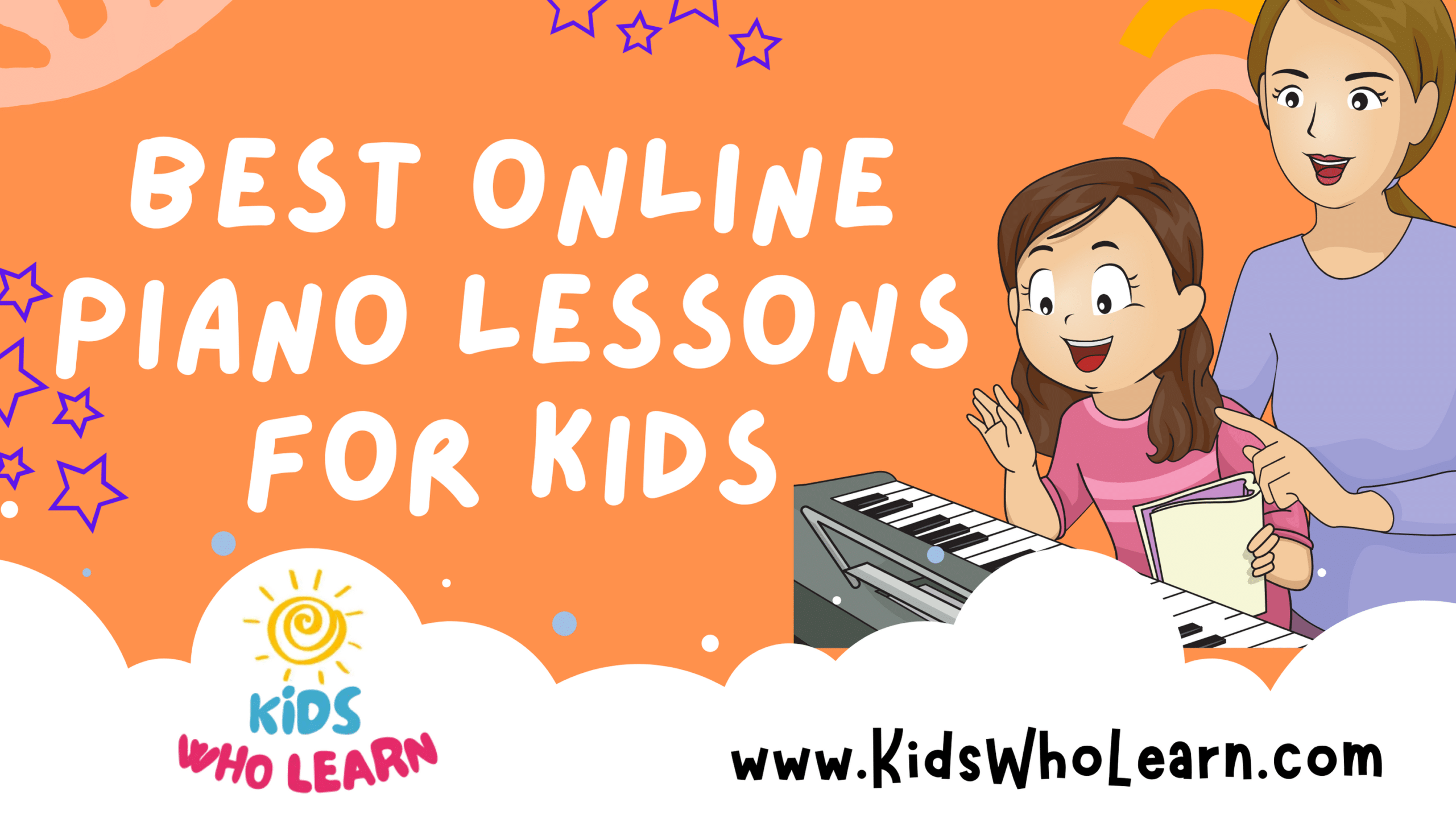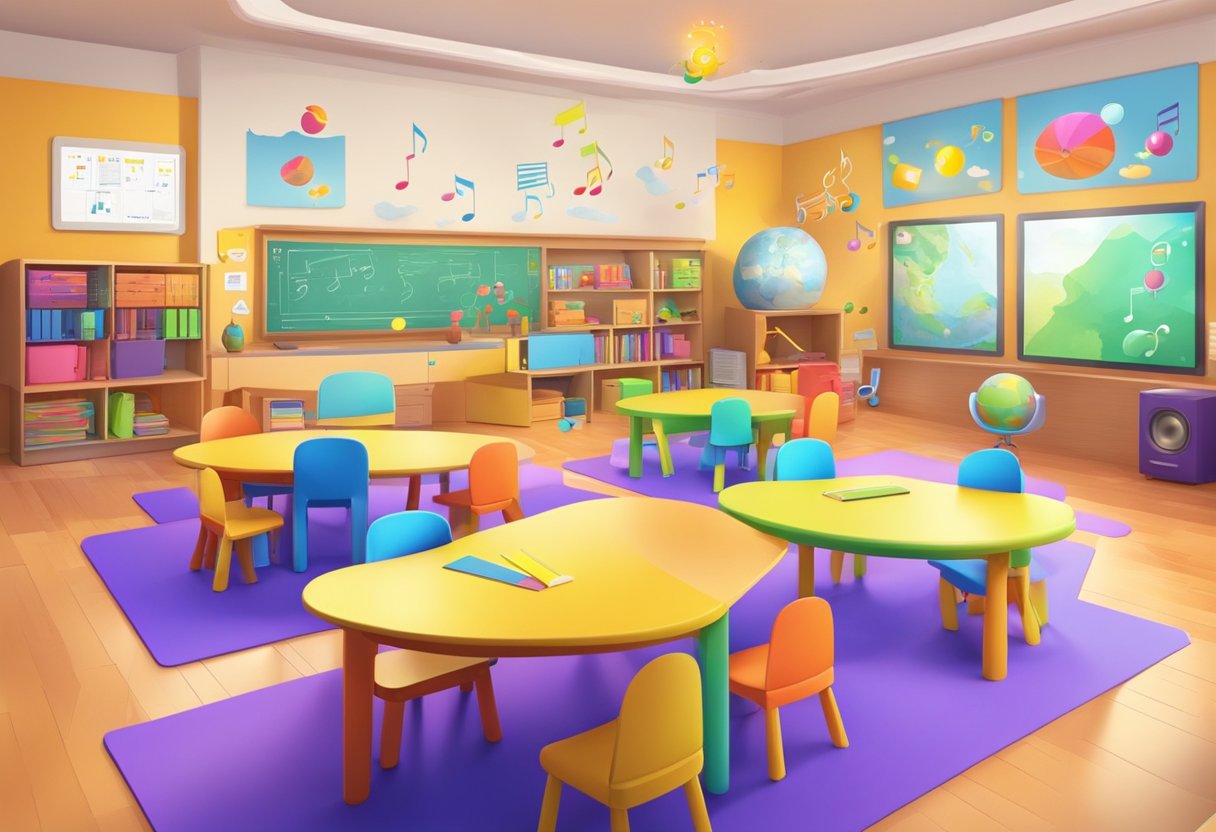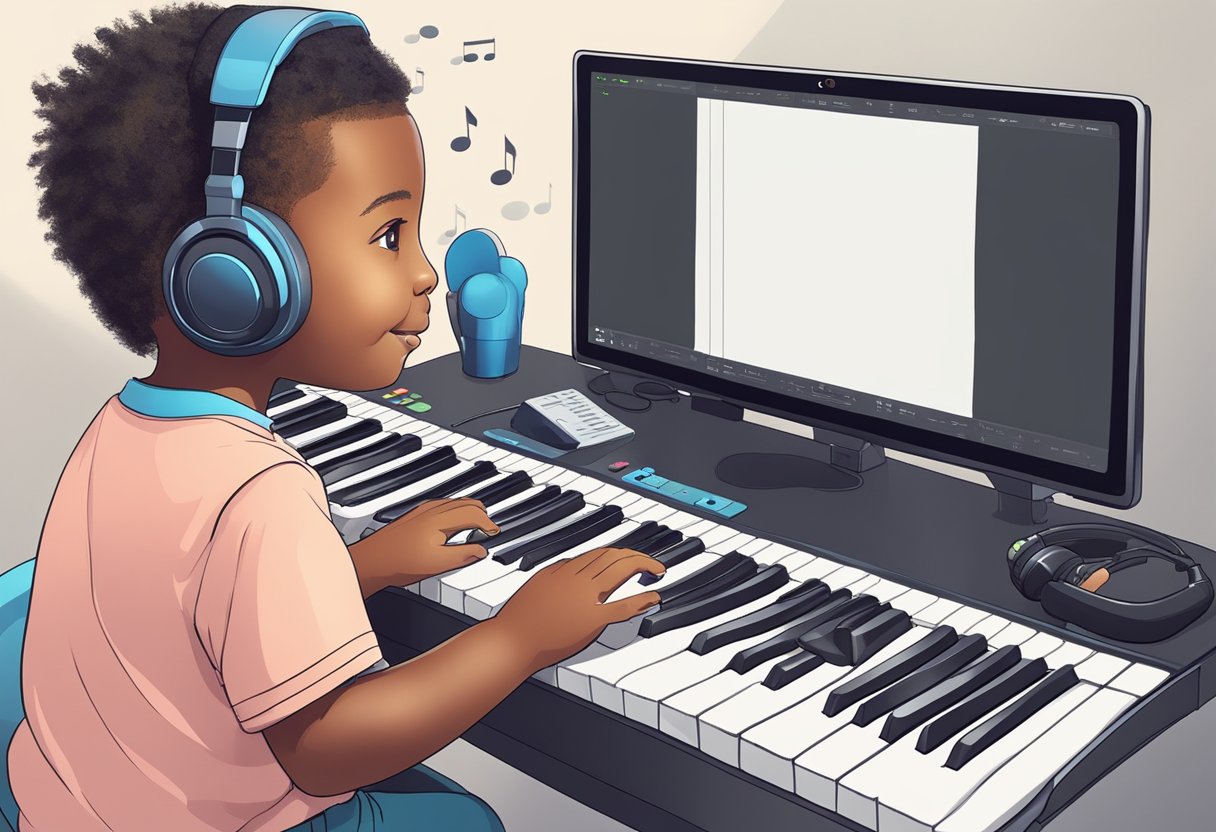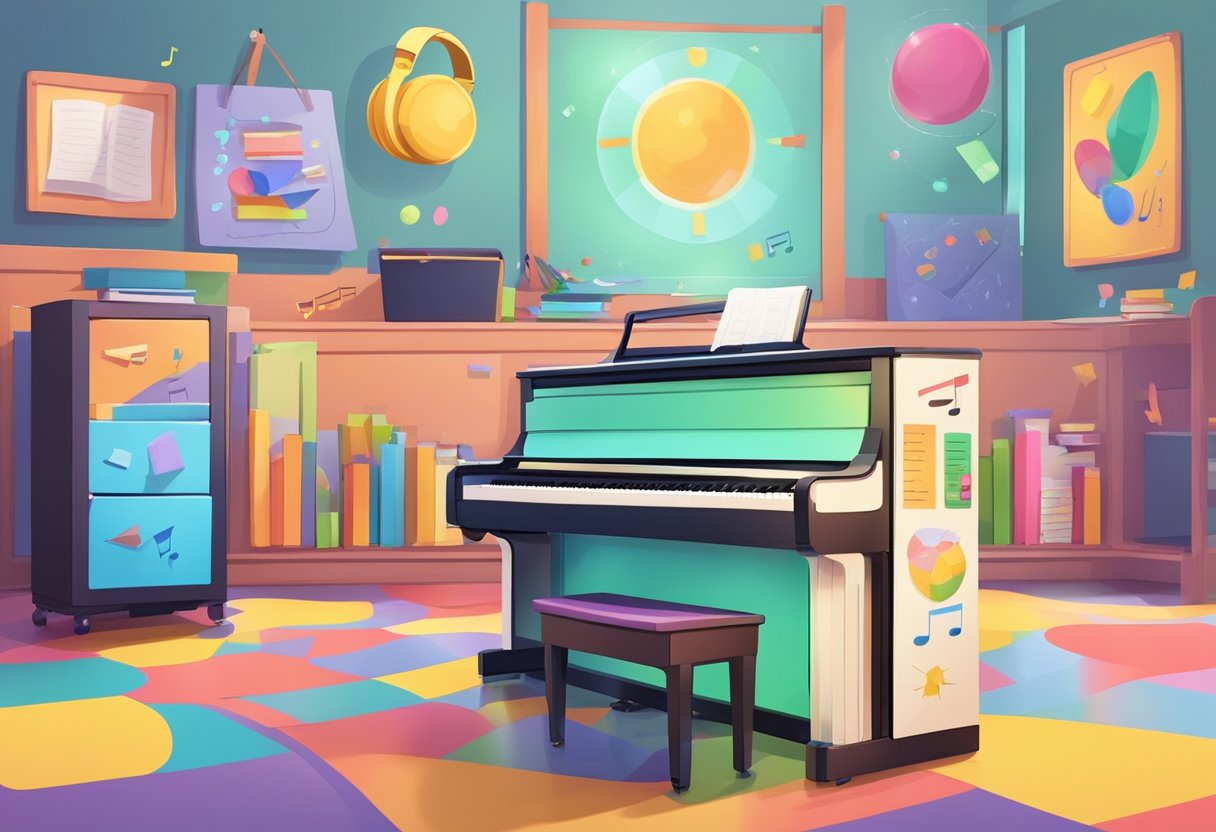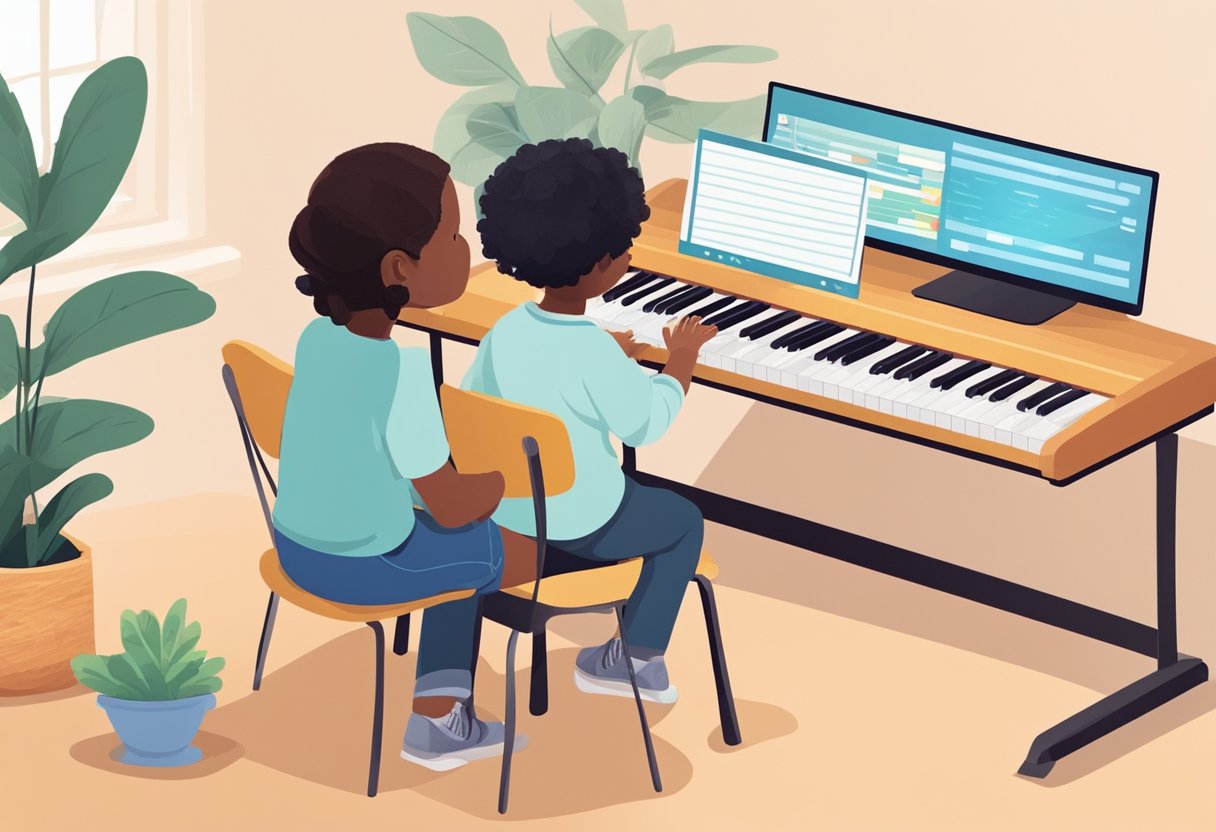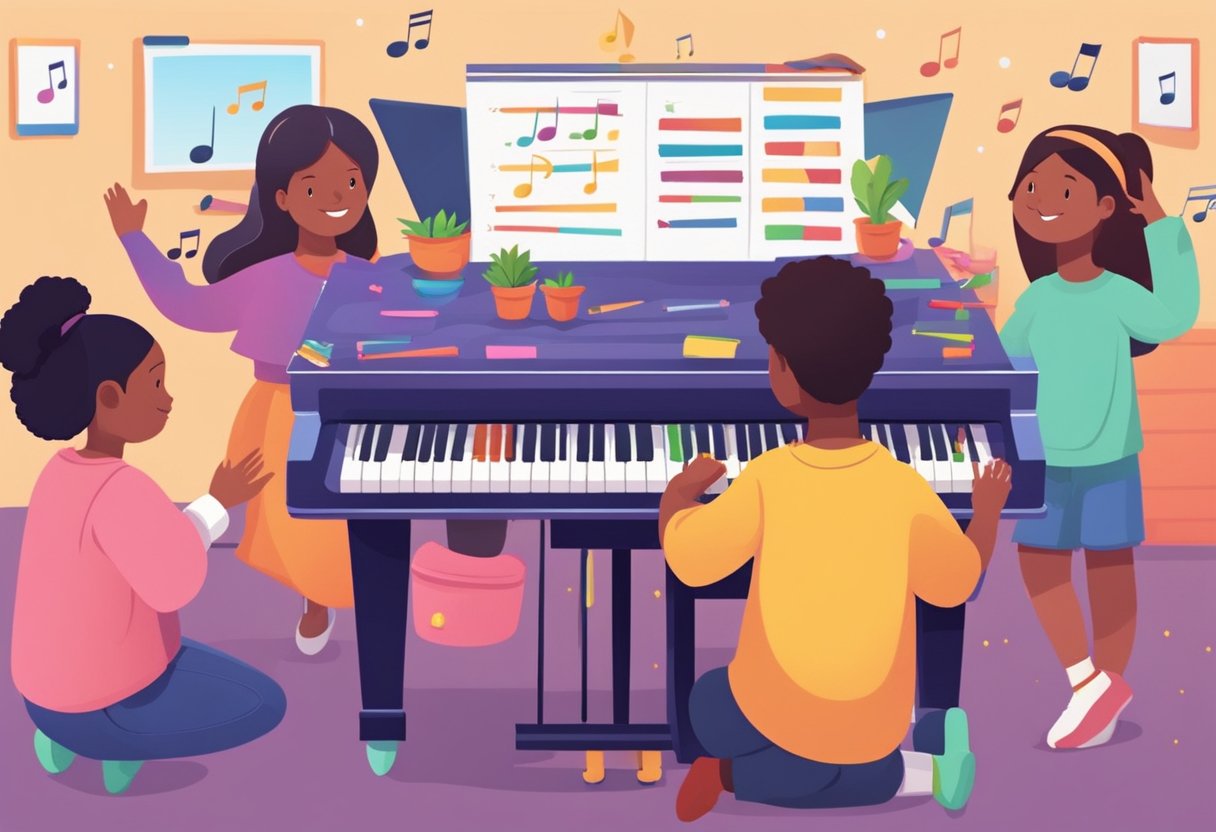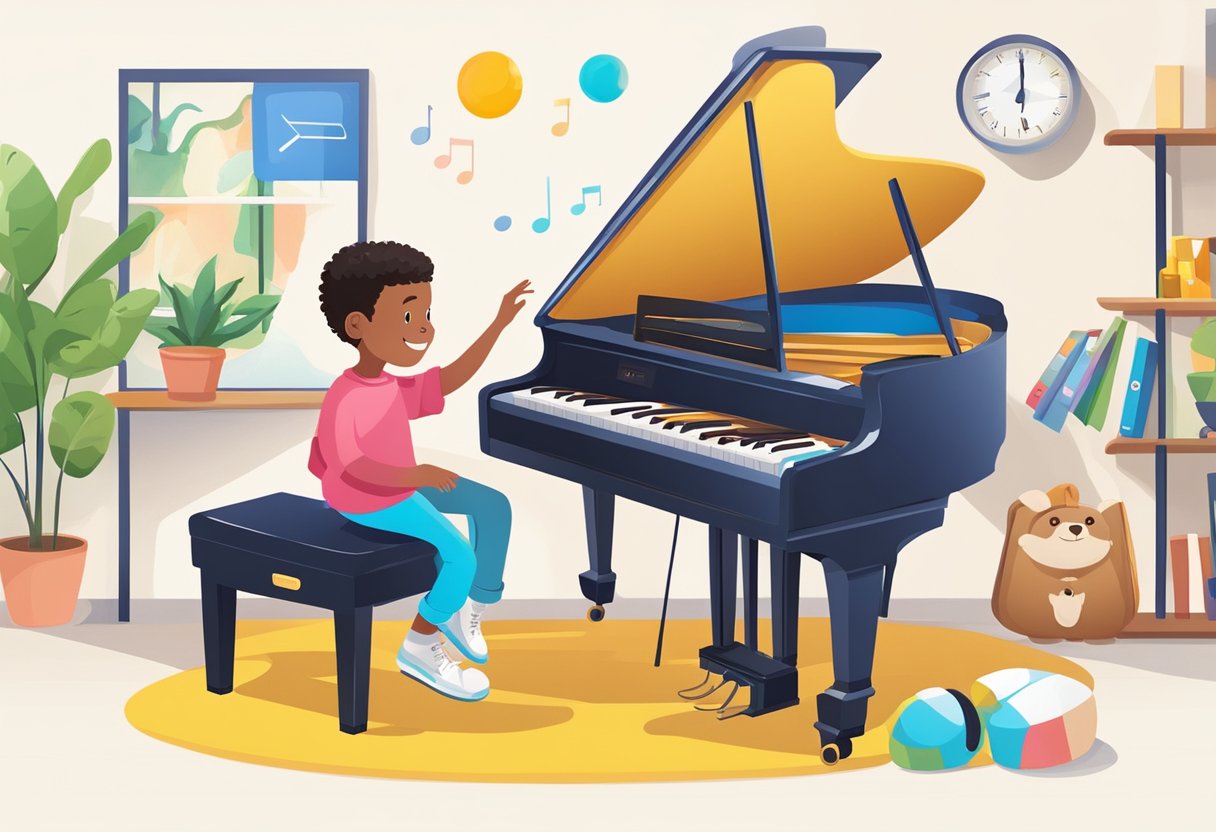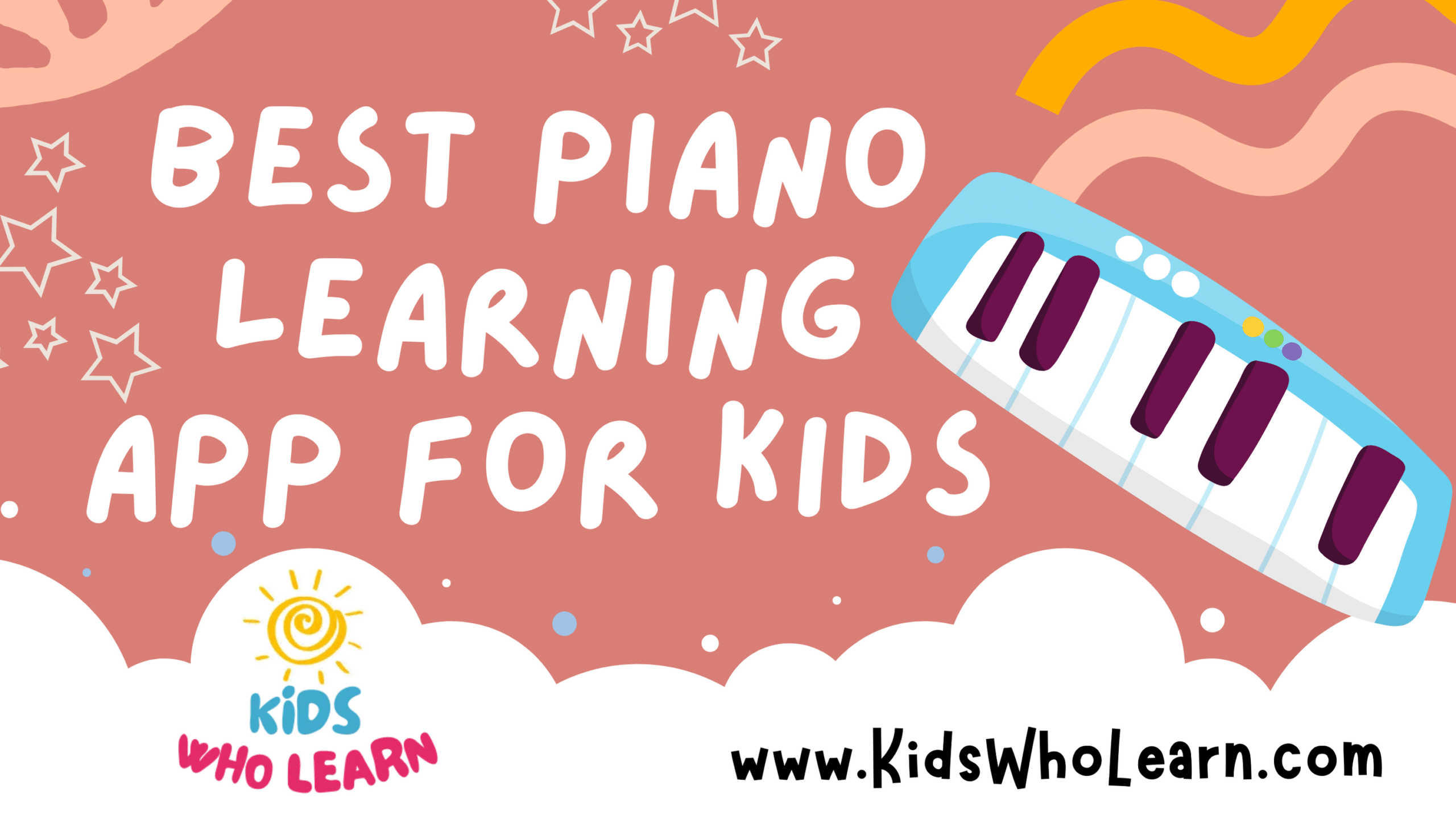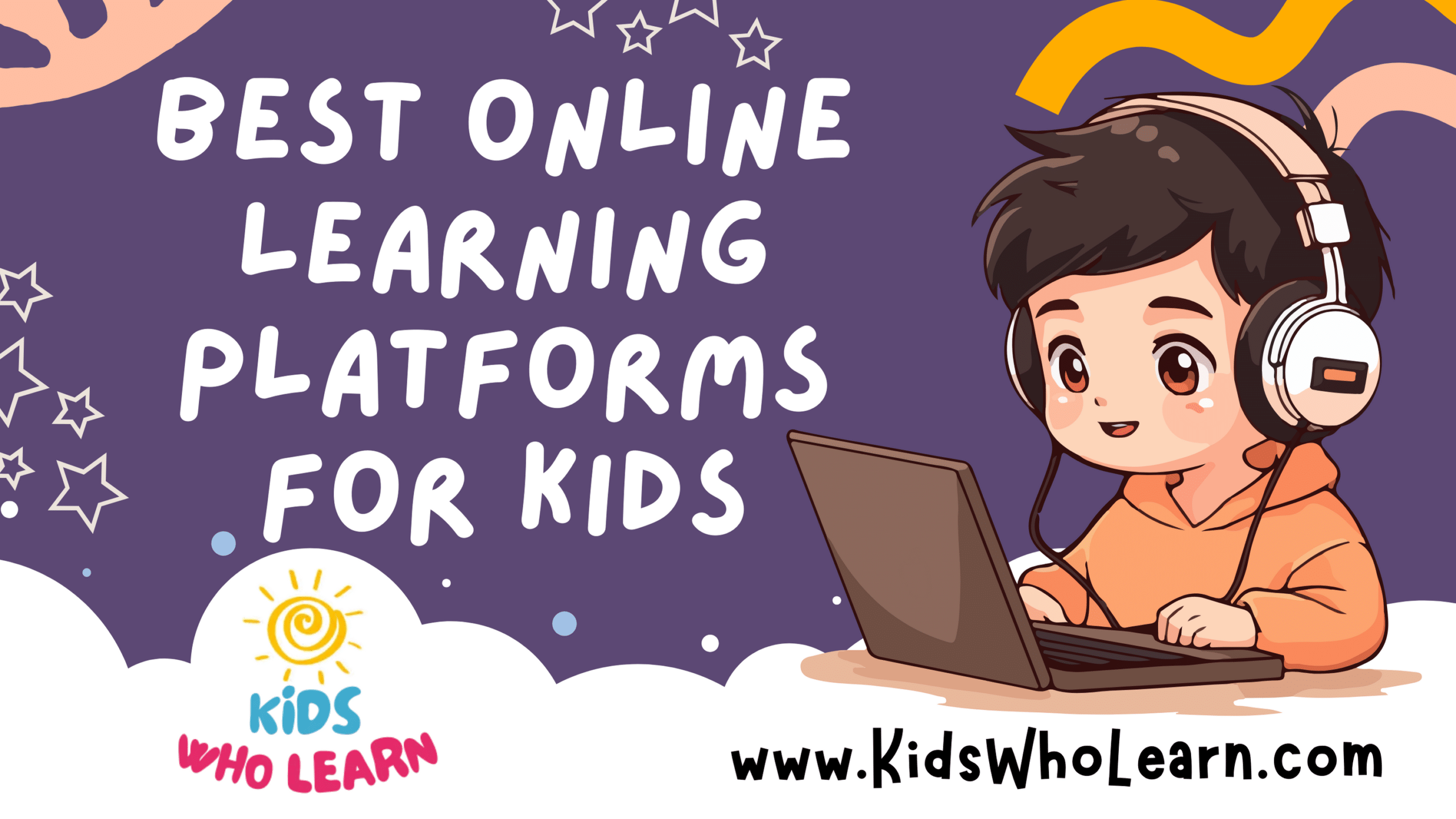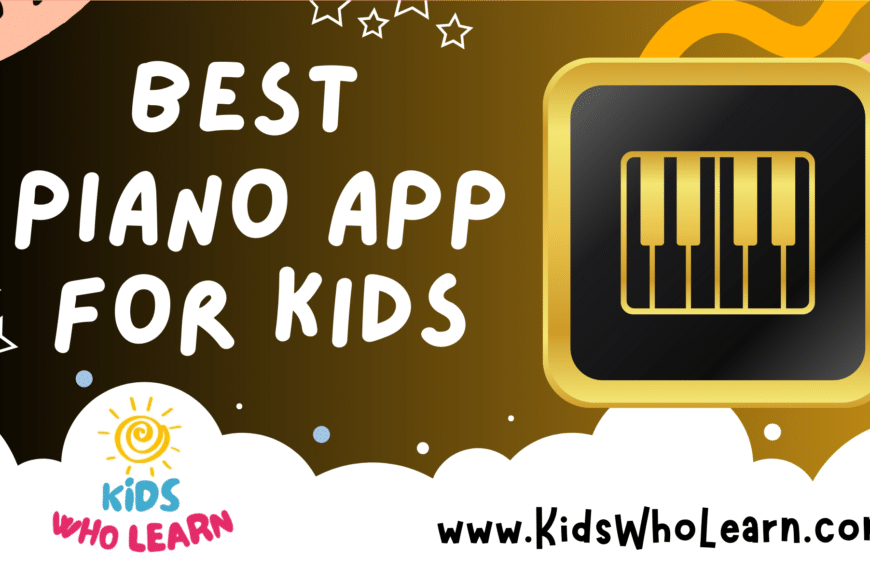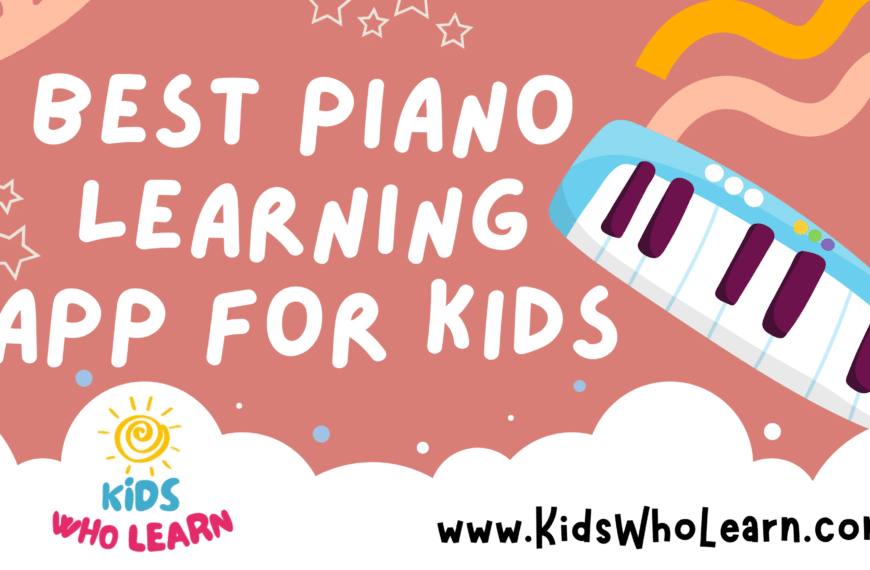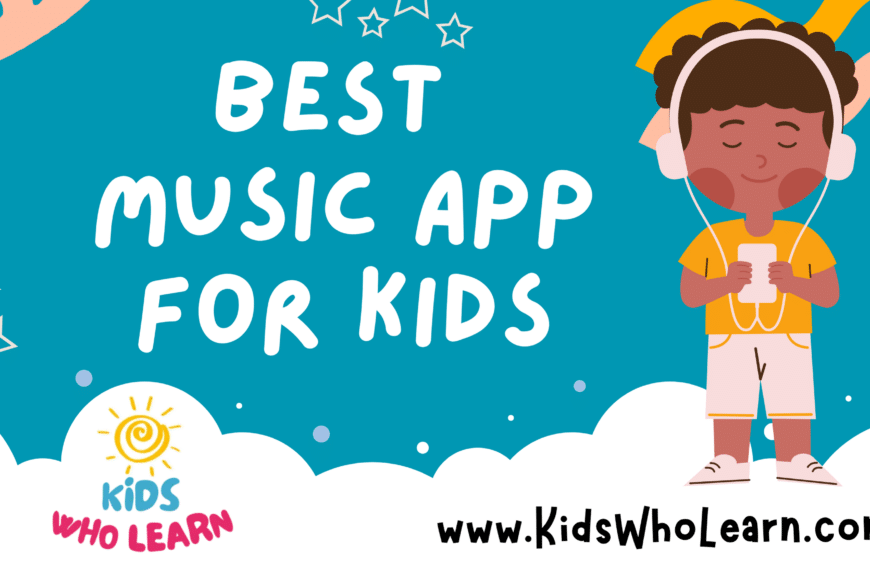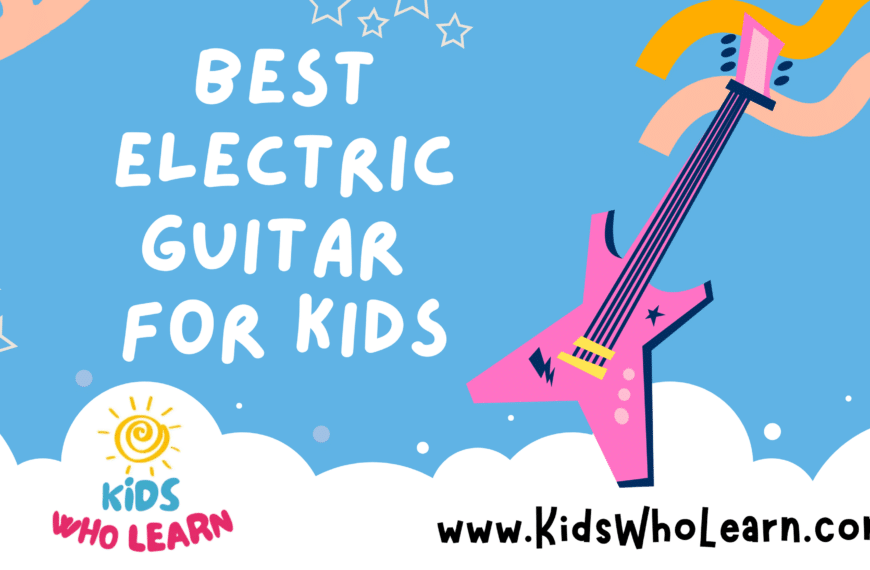Learning a musical instrument can be a delightful and enriching experience for children, and the piano often serves as an ideal starting point. With the rise of digital education, the best online piano lessons have made this journey more accessible than ever before. Tailored for young learners, these programs combine engaging teaching methods with the convenience of home study, catering to different learning styles and pacing preferences.
For parents seeking to foster their child’s musical interest, the digital realm offers an array of structured courses, interactive tools, and dedicated support. Online piano lessons for kids are designed to make the learning process fun and effective, with a focus on building a strong foundation in musical theory, sight-reading, and technique. These programs are not only about the convenience of scheduling, but also about providing quality education that adapts to technological advancements and the evolving needs of young learners.
Key Takeaways
- Online piano lessons offer kids engaging, convenient, and effective instruction in the comfort of their own home.
- A strong foundation in music theory, practical skills, and interactive learning is emphasized in the best programs.
- Parents play a supportive role by choosing suitable lessons and ensuring technological requirements are met.
Choosing the Right Online Piano Lessons
Selecting the most suitable online piano lessons for your child involves understanding their current skill level and finding a curriculum that will keep them engaged and progressing.
Assessing Different Skill Levels
When you’re evaluating online piano lessons, consider where your child falls on the skill spectrum. Here are key points to assess:
- Beginner: Look for programs that offer fundamental music theory and basic piano knowledge, ensuring they start with simple songs they can follow.
- Intermediate: Courses should offer more advanced techniques and a wider repertoire, pushing your child’s boundaries without overwhelming them.
Considering Kid-Friendly Curriculum
Online piano lessons for kids should be structured to maintain their interest and cater to their learning style. Here’s what to keep in mind:
- Engagement: Courses with colorful interfaces, interactive elements, and gamified learning will keep your child’s attention longer.
- Appropriateness: Ensure the material is suitable for children, with content tailored to their age and comprehension level.
By taking these factors into account, you’ll find the best online piano lessons that will meet your child’s needs and support their musical journey.
Top Online Piano Programs for Kids
When selecting an online piano program for your child, consider not just interactivity and fun, but also the educational quality and flexibility the platform can provide.
Hoffman Academy Review
Hoffman Academy stands out by offering comprehensive lessons that make music theory enjoyable for kids. Your child will engage with interactive practice sessions and receive a well-rounded musical education. The basic plan is free, providing affordable access to piano learning.
Flowkey Features
Flowkey offers an impressive range of songs and caters to different skill levels. With its real-time feedback feature, your child can instantly see which notes are played correctly and work on areas needing improvement. Flowkey’s intuitive layout makes navigation easy for young users.
Piano Marvel Insights
Piano Marvel is tailored for children who thrive on structure and clear goals. It provides a curriculum that tracks progress and a library of music including exercises, sight reading, and classical pieces. The SASR (Standard Assessment of Sight Reading) is a unique tool that helps improve your child’s reading ability.
Additional Prominent Platforms
- Playground Sessions: Co-created by Quincy Jones, this platform uses popular music to keep students engaged and lessons enjoyable.
- Pianu: Accessible directly in your browser, Pianu caters to beginners with its gamified learning experience.
- Musiah: Offers a virtual piano teacher and is known for its comprehensive curriculum suitable for ages 7 and up.
- Skoove: Delivers personalized lessons that adapt to your child’s playing, with an emphasis on playing by ear.
- Simply Piano: A mobile app that’s great for learning fundamentals and offers a variety of songs across genres.
- Piano for All: Known for its eBook-based lessons, it focuses on practical playing skills and popular music.
Technological Requirements
To ensure a seamless online piano learning experience for kids, you’ll need the right hardware and software. Your choices will directly affect your child’s ability to participate in lessons and practice effectively.
Choosing the Right Equipment
Your first step is to select an appropriate instrument for your child. An acoustic piano provides a traditional experience with touch and sound, but you may prefer an electronic keyboard due to its versatility.
- MIDI Keyboard: A lightweight option that can connect to computers and iPads.
- Digital Piano: Offers a more authentic feel and sound with built-in speakers, weighted keys, and sometimes a full 88-key range.
For online lessons, you might also require:
- Headphones: For focused practice without external disturbances.
- Sturdy Stand: For secure placement of the digital piano or MIDI keyboard.
- Camera Stand or Tripod: For better positioning of the iPad or webcam during lessons.
Software Compatibility
Software choices will vary depending on whether you’re using a Mac, Windows PC, or an iPad. Check the following for compatibility with your setup:
- Lesson Software: Must correspond with your operating system (Mac/Windows/iPad).
- Drivers for MIDI Controllers: Ensure they are current and compatible with digital pianos or MIDI keyboards.
Remember, some iPads may need an adapter to connect to MIDI controllers or digital pianos. Always verify that your device connections and software applications are up to date to avoid technical issues during lessons.
Lesson Structure and Content
When you embark on online piano lessons for kids, you anticipate a curriculum that’s both engaging and educational. The structure and content of the lessons are pivotal in nurturing a child’s musical ability and ensuring they remain motivated and progress at a comfortable pace.
Video Lessons and Interactive Content
Online piano courses for kids harness video lessons and interactive content to suit young learners. You’ll find high-definition videos that cover everything from note reading to scales and chords. These tutorials often incorporate graphical overlays and camera angles that make following along a breeze. Additionally, interactive elements may include digital pianos that light up in real-time to show the correct keys during a lesson.
- Note Reading: Videos offer a step-by-step approach to reading music and sight-reading.
- Scales & Chords: Video content often breaks down complex concepts into manageable chunks, making it easy to master different scales and chords.
Sheet Music and Song Library
A significant component of online piano lessons is the availability of sheet music. You’ll have access to a comprehensive song library that allows your child to practice a variety of genres at different skill levels.
- Song Selection: A well-structured program offers a rich library filled with popular tunes and classic melodies, suitable for sight reading and general practice.
- Progressive Difficulty: Sheet music ranges from simple melodies perfect for beginners to more complex pieces designed to challenge more advanced students as they improve.
Music Theory and Ear Training
Understanding the “why” behind the music is just as important as learning to play the right notes. Through your child’s lessons, they’ll gain a solid foundation in music theory, aiding them in improvisation and the creative aspects of playing music.
- Music Theory: Structured lessons will explore the essentials, from note values to time signatures, ensuring a comprehensive knowledge base.
- Ear Training: Regular exercises will be in place to develop your child’s listening skills, an essential part for ear training and improvisation.
By adhering to a thoughtfully curated lesson plan encompassing these aspects, your child’s online piano education will be reinforced with the necessary skills and knowledge to thrive as both a reader and performer of music.
Practicing and Progress
To excel at playing piano, kids need structured practice routines and a way to track their progress. High-quality online piano lessons provide tools and metrics tailored to young learners that make these aspects engaging.
Progress Tracking and Feedback
Online piano courses often feature progress tracking systems to show your child’s improvement over time. For example, apps may display the percentage of a music piece mastered or provide a sight-reading test score. Instant feedback mechanisms are common; they listen to your child’s performance and give corrective guidance, thus making learning proactive and targeted.
- Instant Feedback:
- Immediate correction on note accuracy and rhythm.
- Enhances learning speed by pointing out mistakes as they occur.
- Progress Tracking:
- Visual diagrams and milestones.
- Keeps motivation high by showing tangible achievements.
Practice Tools and Plans
Your child will benefit from the comprehensive practice tools and plans accompanying these lessons. Online platforms often provide custom practice sessions, which can target areas of difficulty or new concepts. Additionally, structured lesson plans guide your child through each stage of learning.
- Practice Tools:
- Metronomes, note recognition games, and interactive sheet music.
- Aid in developing timing and note reading skills.
- Practice Plans:
- Daily or weekly guides with tailored exercises.
- Ensure consistent improvement and mastery of the instrument.
Free trials available with many services allow you to explore these features without commitment. This lets you find the right fit for your child’s learning style and needs, ensuring they have the resources to practice effectively and enjoy their musical journey.
Benefits of Online Lessons over Traditional
Online piano lessons offer distinct advantages tailored to your lifestyle and learning preferences, particularly in terms of convenience and interactivity.
Flexibility and Self-Pacing
- Convenience: You have the freedom to schedule your lessons at times that suit you, eliminating the need to travel and allowing you to fit piano practice into a busy family schedule.
- Self-Paced Learning: Online platforms typically provide a structured learning environment that still allows you to progress at your own pace, giving you control over how quickly or slowly you want to master each lesson.
Interactive and Engaging Learning
- Interactive Piano Games: Many online lesson platforms incorporate games and interactive activities that make learning the piano more fun, helping to maintain your child’s interest.
- Visual Feedback: Immediate visual feedback tools, such as progress trackers and real-time corrections, offer valuable insights into your playing, making improvements easier and more efficient than traditional piano lessons might allow.
Guidance for Parents
Choosing the best online piano lessons for your child involves more than just finding the right instructor. It’s about supporting their growth and development through music education.
Supporting Your Child’s Musical Journey
In guiding your child through their musical education, it is essential to foster confidence and discipline, two foundational pillars of learning an instrument. Regular practice sessions are critical and you can encourage discipline by setting a consistent schedule. To aid in developing hand-eye coordination, look for programs that have interactive exercises and games that make these skills a part of the learning process.
- Create a Supportive Environment:
- Set up a quiet and comfortable practice space.
- Ensure the piano or keyboard is in good condition and accessible.
- Monitor Progress:
- Take an interest in what they are learning.
- Celebrate achievements to boost their confidence.
- Interactivity is Key:
Encourage courses that offer engaging content, as making music fun is crucial to sustaining interest and motivation. - Use Resources Wisely:
Utilize the materials provided by the program, whether they are videos, sheet music, or practice exercises. - Encourage Regular Practice:
Italicize the importance of consistency without putting undue pressure on your child. - Stay Involved Without Overbearing:
Provide support by being present, but allow your child autonomy to explore and learn.
By focusing on these specifics, you will be well-equipped to help your child reap the full benefits of their online music education.
Supplementary Resources and Community
Engaging effectively in online piano lessons for kids involves more than just one-on-one instruction. To enhance your child’s learning experience, it’s vital to have access to supplementary resources and supportive communities. These can significantly enrich their educational journey by providing additional practice tools and a network of fellow learners.
Online Communities and Support
Interacting with others on the same learning path can be incredibly beneficial for your child’s growth as a pianist. Outschool offers a vibrant community where kids participate in group lessons and share their progress. Websites like Piano Nanny and Zebra Keys provide forums and support systems where learners can ask questions and receive guidance from experienced players and educators.
Recommended Apps and Tools
Accelerate your child’s piano journey with these meticulously selected apps and tools designed to complement their lessons:
- Apps:
- Piano Maestro: A widely recognized app that turns practice into a fun game with a rich catalog of music, from classics to current hits. It’s suitable for beginners and advanced students alike.
- Simply Piano: A user-friendly app offering step-by-step lessons that adapt to your child’s playing level. It provides instant feedback and boasts a variety of songs and exercises.
- Tools:
- Backing Tracks: Utilize a range of backing tracks available in these apps to aid in rhythm and timing during practice sessions, ensuring a more interactive and engaging experience.
- Mr. Hoffman’s Tools: Seek out the resources available on Mr. Hoffman’s website, including printable sheet music, practice instructions, and listening exercises, all tailored to young learners.
By incorporating these resources and tapping into supportive communities, your child can enjoy a well-rounded and interactive piano learning experience.
Advancing Beyond Basics
https://www.youtube.com/watch?v=q7mP4JbLmSs&embed=true
Once you’ve grasped the fundamentals of piano playing, it’s time to elevate your skills by mastering advanced techniques and exploring a variety of music genres.
Mastering Advanced Techniques
To become proficient in advanced piano techniques, focus on amplifying your dexterity and control. Dive into complex finger exercises to improve agility and speed. Sight-reading is also crucial; regularly challenging yourself with new pieces enhances your ability to read and play simultaneously. Work on your memory to build a vast repertoire, facilitating smoother performances.
- Techniques to practice:
- Legato and staccato: the art of playing smoothly or sharply.
- Dynamic control: mastering the volume variations for expressive playing.
- Advanced scales and arpeggios: to navigate the keyboard effortlessly.
Exploring interpretative skills, such as playing by ear and singing while playing, will develop your musicality and ability to improvise.
Exploring Different Music Genres
Broadening your musical horizon enriches your playing style. Each genre has its unique characteristics:
| Genre | Key Elements | Tips for Practice |
|---|---|---|
| Classical | Structure, technique | Focus on precision, explore compositions by different eras |
| Blues | Rhythm, improvisation | Learn the 12-bar blues progression, practice with backing tracks |
| Rock | Energetic style, chords | Study rock classics to understand common patterns |
As you acquaint yourself with genres like classical, blues, and rock, you’ll also discover how to adapt techniques across these styles. Learn to identify patterns such as the 12-bar blues in blues piano, or the use of arpeggios in classical pieces. Your adaptability will also benefit from integrating your sight-reading skills with playing by ear, which is especially valuable in genres like rock and blues, where improvisation is key.
Frequently Asked Questions
In this section, you’ll find precise information to commonly asked questions about online piano lessons for kids, helping you make well-informed decisions for your child’s musical education.
What are the top platforms offering piano lessons for young beginners?
Several platforms have gained recognition for their quality piano lessons for young beginners, including Playground Sessions, Flowkey, and Piano Marvel. Playground Sessions stands out with its interactive software, co-created by music legend Quincy Jones.
How effective are online piano games in teaching children music theory and piano skills?
Online piano games can be highly effective for young learners as they combine fun with education, encouraging regular practice. These games utilize repetition and interactive challenges to reinforce music theory and piano skills.
What should parents look for when choosing an online piano course for their child?
Parents should ensure the course offers a structured curriculum tailored for children, features engaging content, and provides feedback mechanisms. The option for live lessons and the qualifications of instructors are also important factors.
How do Hoffman Academy’s online lessons fare for children’s piano education?
Hoffman Academy is well-regarded for providing comprehensive piano education through video lessons designed specifically for kids. The program includes ear training, sight reading, and technique

